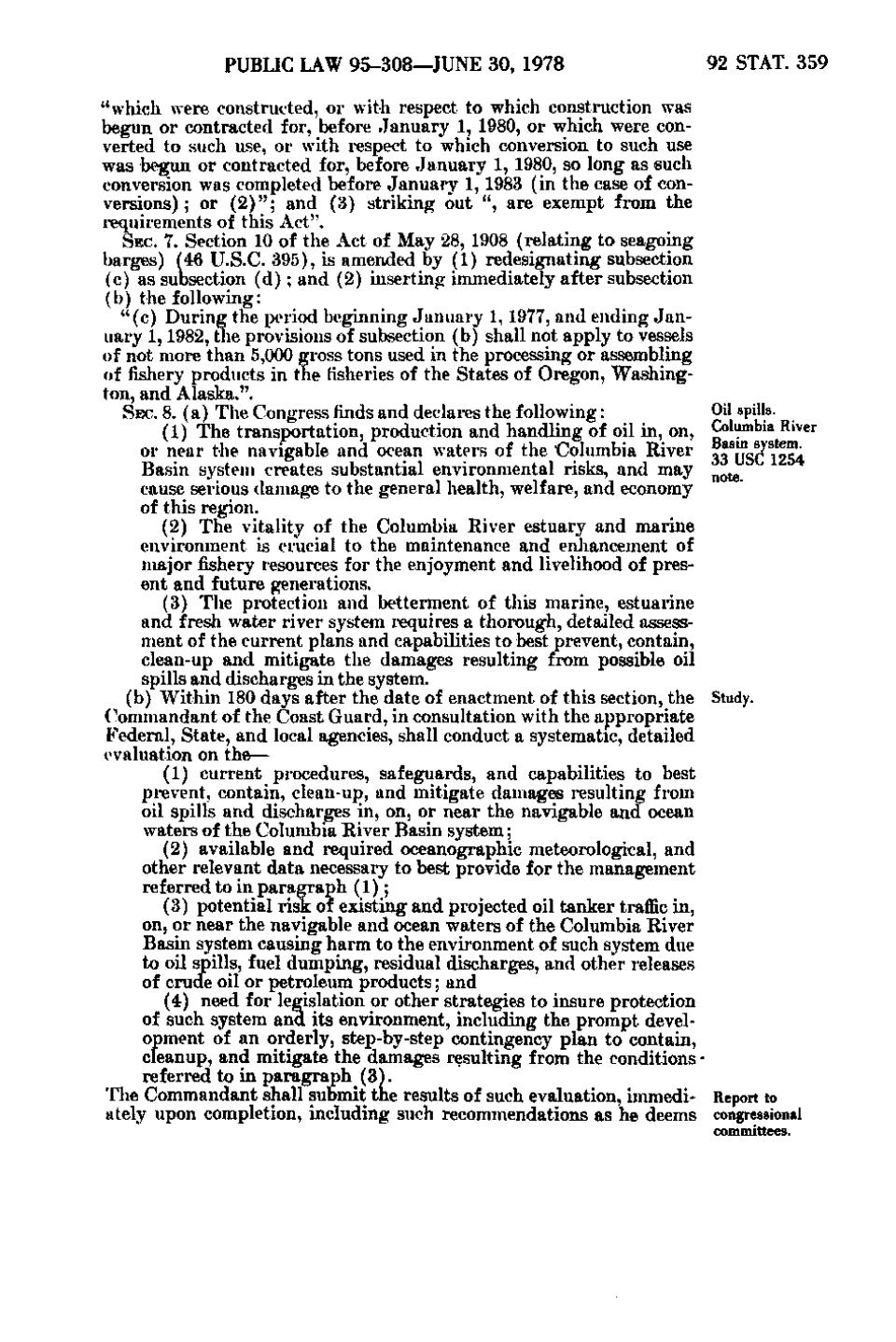PUBLIC LAW 95-308—JUNE 30, 1978 "which were construrted, or with respect to which construction was begun or contracted for, before January 1, 1980, or which were converted to such use, or with respect to which conversion to such use was begun or contracted for, before January 1, 1980, so long as such conversion was completed before January 1, 1983 (in the case of conversions); or (2) "; and (3) striking out ", are exempt from the requirements of this Act. SEC. 7. Section 10 of the Act of May 28, 1908 (relating to seagoing barges) (46 U.S.C. 395), is amended by (1) redesignating subsection (c) as subsection (d); and (2) inserting immediately after subsection (b) the following: "(c) During the period beginning January 1, 1977, and ending January 1, 1982, the provisions of subsection (b) shall not apply to vessels of not more than 5,000 gross tons used in the processing or assembling of fishery products in the fisheries of the States of Oregon, Washington, and Alaska.". SEC. 8. (a) The Congress finds and declares the following: (1) The transportation, production and handling of oil in, on, or near the navigable and ocean waters of the Columbia River Basin system creates substantial environmental risks, and may cause serious damage to the general health, welfare, and economy of this region. (2) The vitality of the Columbia River estuary and marine environment is crucial to the maintenance and enhancement of major fishery resources for the enjoyment and livelihood of present and future generations. (3) The protection and betterment of this marine, estuarine and fresh water river system requires a thorough, detailed assessment of the current plans and capabilities to best prevent, contain, clean-up and mitigate the damages resulting from possible oil spills and discharges in the system. (b) Within 180 days after the date of enactment of this section, the Commandant of the Coast Guard, in consultation with the appropriate Federal, State, and local agencies, shall conduct a systematic, detailed evaluation on the— (1) current procedures, safeguards, and capabilities to best prevent, contain, clean-up, and mitigate damages resulting from oil spills and discharges in, on, or near the navigable and ocean waters of the Columbia River Basin system; (2) available and required oceanographic meteorological, and other relevant data necessary to best provide for the management referred to in paragraph (1); (3) potential risk of existing and projected oil tanker traffic in, on, or near the navigable and ocean waters of the Columbia River Basin system causing harm to the environment of such system due to oil spills, fuel dumping, residual discharges, and other releases of crude oil or petroleum products; and (4) need for legislation or other strategies to insure protection of such system ana its environment, including the prompt development of an orderly, step-by-step contingency plan to contain, cleanup, and mitigate the damages resulting from the conditions referred to in paragraph (3). n i e Commandant shall submit the results of such evaluation, immediately upon completion, including such recommendations as he deems
92 STAT. 359
Oil spills. Columbia River Basin system. 33 USC 1254 note.
Study.
Report to congressional committees.
�
